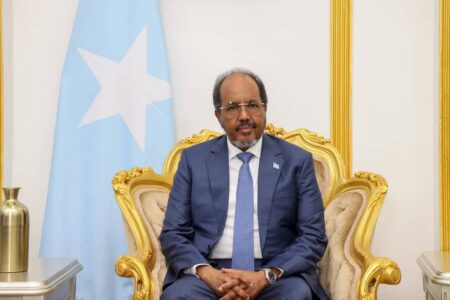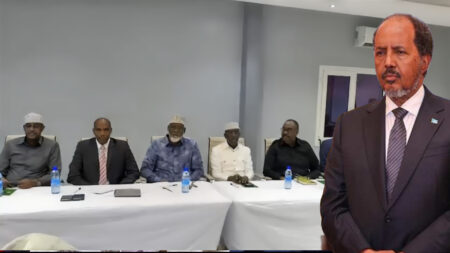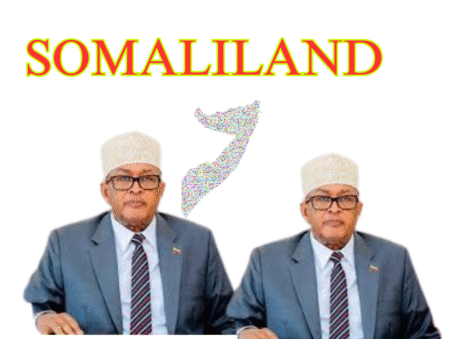The Fall of Prank States ( Somaliland and Puntland) and the Rise of SSC: Reclaiming Federal Somali
This paper explores the dramatic political transformation in northern Somalia following the resurgence of SSC-Khatumo. With the Somali Federal Government’s re-engagement and the historic visit of the Prime Minister to Las Anod, the first since the state collapse in 1991, SSC’s re-entry into the federal fold signals the collapse of two parallel political fictions: the self-declared “Republic of Somaliland” and Puntland’s overstated federalist narrative. The events mark a turning point in Somalia’s journey toward a legitimate, inclusive federal system.
Since the collapse of Somalia’s central government in 1991, multiple regions have vied for control, autonomy, or recognition. Two entities- Northwest Somali’ Somaliland’ and Puntland– emerged with competing visions, each claiming legitimacy over the Sool, Sanaag and Cayn (SSC) regions. Yet neither ever secured consent from the SSC population. In 2023, the people of SSC reasserted their authority, rejected both powers, and aligned themselves openly with the Somali Federal Government.
This resurgence is no longer a regional matter; it has become a national pivot. The Federal Government’s direct engagement, including the presence of ministers and the imminent arrival of the Prime Minister, represents the end of externally imposed rule and the beginning of a new era of sovereign governance for SSC.
Somaliland’s Collapse: The End of a Fiction
The so-called “Republic of Somaliland”, often referred to by locals as the Northwest Prank State, has based its legitimacy on the colonial boundaries of British Somaliland. Yet its claim over SSC was never backed by democratic participation, consent, or peaceful administration. Instead, Hargeisa relied on occupation, propaganda, and military force.
The Las Anod uprising in early 2023 exposed this lie. The people of SSC resisted Somaliland’s incursion, engaged in months of battle, and eventually expelled its forces. Somaliland’s withdrawal from Las Anod was more than a military defeat; it collapsed its territorial narrative. Its fallback argument, that SSC is part of its “historical colonial territory,” is both legally ungrounded and politically outdated. Secession without consent cannot stand in modern statehood.
Puntland’s Meltdown: The Failure of the ‘Mother of Federalism’
Puntland, founded in 1998 and led mainly by Majeerteen elites, long styled itself as the pioneer of Somali federalism. It claimed SSC as part of its “Hartiland” and used clan affinity to maintain influence. Yet, during Somaliland’s military campaign in Las Anod, Puntland remained silent. It neither defended SSC nor stood by its previous federalist rhetoric.
This silence, at a moment of existential crisis for SSC, marked Puntland’s political meltdown. SSC has since moved on; its people now manage their governance, engage directly with the federal centre, and openly reject Puntland’s authority. Puntland’s reluctance to support SSC during the siege has cost it legitimacy and moral standing.
The irony is sharp: the so-called “mother of federalism” failed to protect one of its own claimed communities, only to watch the Federal Government reclaim that role with more credibility and effectiveness.
The Federal Government’s Strategic Re-entry
The Somali Federal Government initially took a cautious stance during the SSC crisis. But once local governance reasserted itself, Mogadishu acted. Federal ministers, including the Minister of Interior and Federal Affairs and the Minister of Justice and Constitution, arrived in Las Anod before the Prime Minister’s historic visit. They were welcomed not as guests but as rightful leaders of a federal nation.
Several federal projects were immediately launched:
The Prime Minister’s arrival, expected Saturday, will mark the first time since 1991 that a sitting Somali head of government visits SSC territory. It is a powerful statement of unity andfederal authority returning by invitation, not imposition.
The Future of SSC: Not a Disputed Zone, But a Federal Partner
SSC will no longer be treated as a region for others to “discuss” or divide. Its people have determined their path and stood firm against foreign-imposed rule. The Somali Police Force’s salute to SSC forces and the federal recognition of its administration prove that SSC is not a buffer zone but a legitimate federal partner.
SSC will not be negotiated away in agreements between Puntland and Somaliland. It now operates with direct federal engagement, and its future is tied to the Somali constitution, not outdated tribal maps or colonial claims.
Strategic and Political Implications
The political geography of Somalia is being redrawn. The collapse of Somaliland’s secessionist narrative and the discrediting of Puntland’s federalist claim have created space for a more authentic, people-driven governance model.
Somaliland’s fallback to “British Somaliland” arguments will not save it. Without popular mandate or territorial control, the project is politically bankrupt. Puntland, now sidelined, must reckon with its loss of influence. Its miscalculation may cost it more than SSC—it may signal the beginning of decentralisation within Puntland itself.
If the federal government continues on this path of inclusive engagement, it can rebuild trust across Somalia, not through force but through legitimacy, service delivery, and respect.
Conclusion: From Fiction to Federalism
The rise of SSC and its re-alignment with the Somali Federal Government marks the end of a long, painful chapter of marginalisation and imposed rule. The Northwest Prank State of Somaliland and the failed guardian of federalism, Puntland, both ignored SSC’s voice. Today, that voice has become the loudest force reshaping Somali politics.
The Prime Minister’s visit, over thirty years after the state collapsed, is not a mere gesture. It confirms that SSC is no longer under dispute and is central to Somalia’s federal future. This shift is irreversible.
The federal government’s challenge now is to institutionalise this change, protect SSC’s rights, and extend similar engagement across all marginalised regions. Somalia’s unity will not come from slogans or outdated maps. It will come from recognition, partnership, and inclusion. SSC has shown the way.




